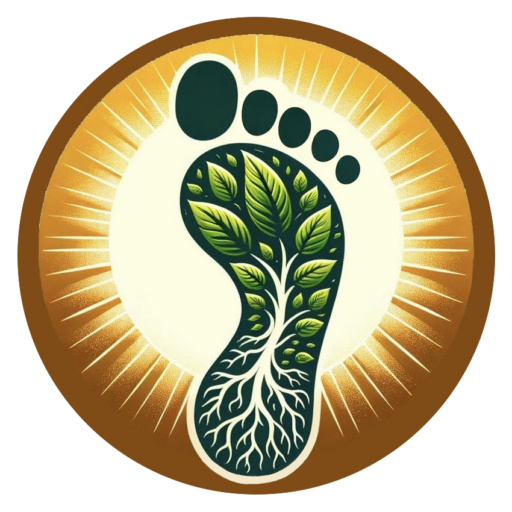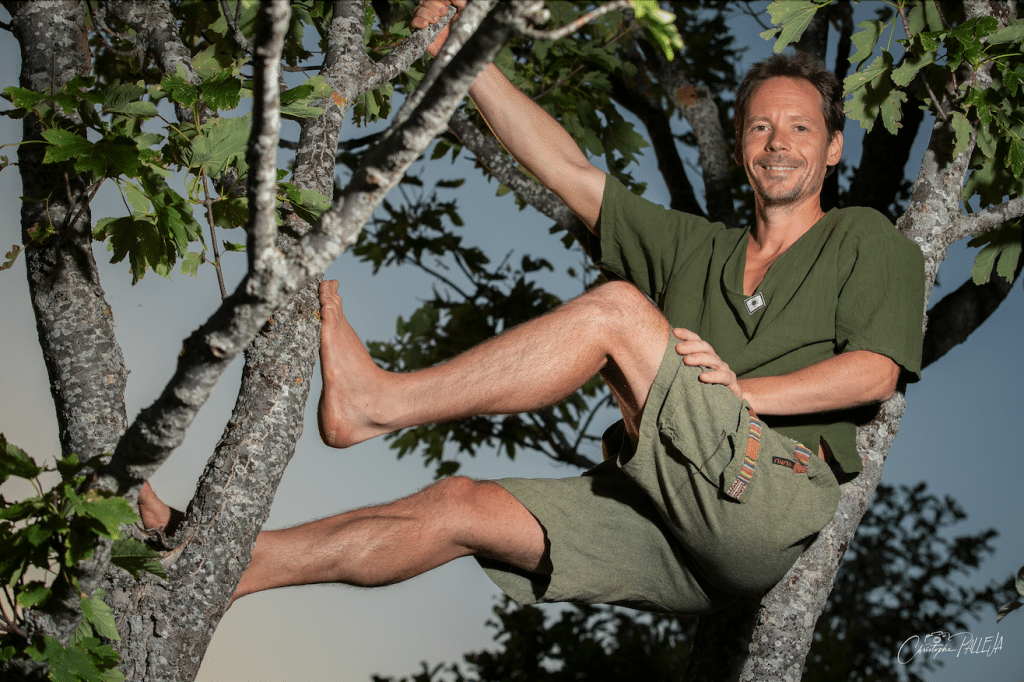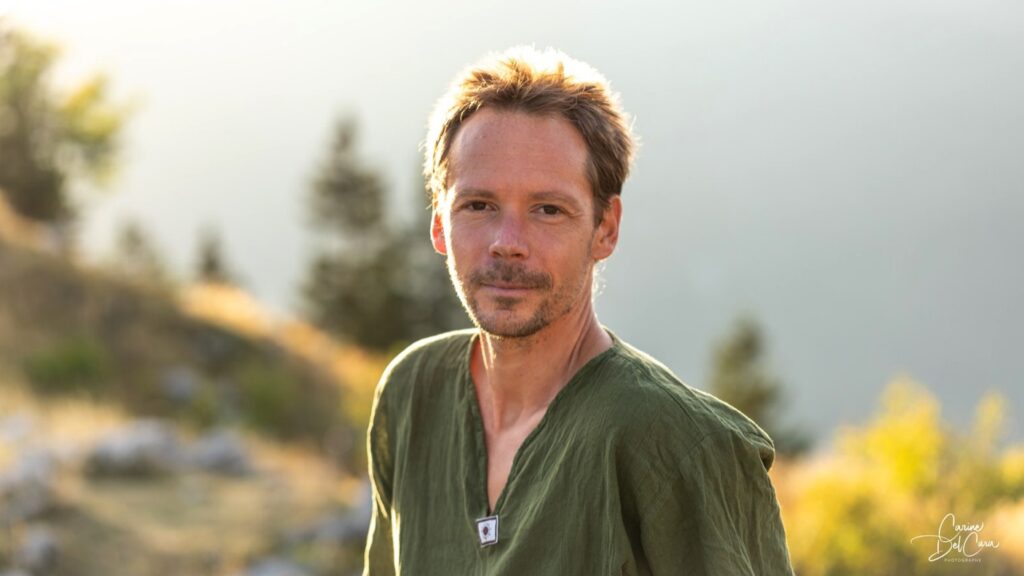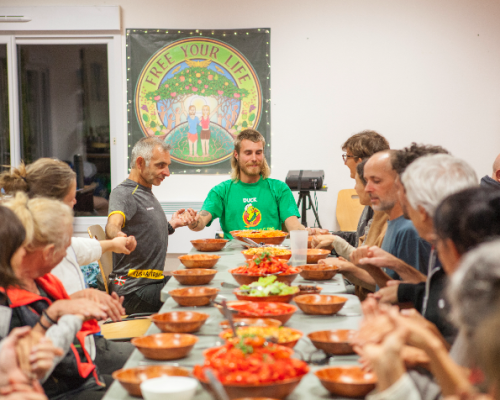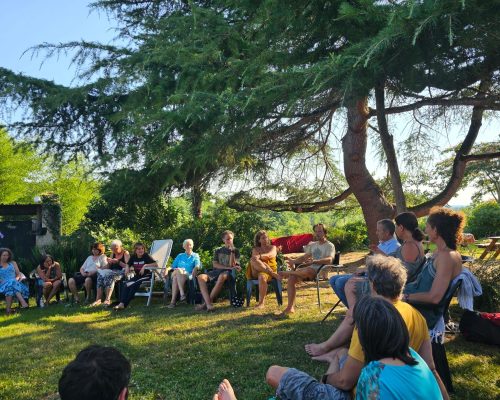Have you ever heard of hygienism?
It is a natural approach to health based on the principle of living and healing in accordance with the laws of nature. Hygienism is not limited to prevention, and its observed beneficial effects are not confined to the placebo effect. On the contrary, it is a holistic approach to health that restores vitality to the body so that it has the means to achieve true healing.
Humans and nature
To optimize our health and well-being, hygienism considers that the right way of living must align with our primate physiology. And those who practice or recommend behaviors that mimic the life we would have if we were released into nature, as in the past, claim to be hygienists. This makes sense since our primate genetics have adapted over the last 65 million years to our environment and modern life has radically changed our living conditions. The debate about the ‘right’ way to live dates back to antiquity, and some influential figures in recent centuries, such as American health educator Herbert Shelton (1895-1985) and philosopher Jean-Jacques Rousseau (1712-1778), understood the health and well-being benefits we could gain from observing nature and its laws. Nowadays, scientific evidence* abounds in this regard, and we realize that our contemporary theories and sciences can only bow to the intelligence of life.
*On this subject, read: The Derivative Bath by France Guillain, Does Disease Have a Meaning by Thierry Janssen, Everything That Doesn’t Kill Us by Scott Carney, The Story of the Human Body by Daniel Lieberman, Intelligence in Nature by Jeremy Narby, Rebirth Through Breath by Désiré Mérien.
Attempt at a definition
Etymologically, the term ‘Hygienism’ originates from Greek mythology, Hygie or Hygée (in ancient Greek Ὑγιεία /Hugieía or Ὑγεία /Hugeía, ‘health’), daughter of Asclepius, the god of medicine, and Epione, is the goddess of health, cleanliness, and hygiene. She represents preserved health and also symbolizes preventive medicine.
Here is my definition: Hygienism is an approach to health based on the observation and practice of natural laws. Through the study of physiological needs and healing mechanisms, it teaches how to develop a proper listening to oneself and thus intuitively regain good hygiene of life. Hygienism is a science of health whose foundations were laid by American doctors. It was a precursor to modern naturopathy, and its goal is to make optimal health accessible to humanity.
But according to reference dictionaries, this word, ‘hygienism’, has not yet gained recognition… The only definition found for ‘hygiene’ is the following:‘A set of measures, processes, and techniques implemented to preserve and improve health.’(source: to CNRTL: “Centre National de Ressources Textuelles et Lexicales” (National Center for Textual and Lexical Resources)).
In my opinion, there are several reasons contributing to this confusion around the definition of hygienism:
- The still predominant Pasteurian thought wrongly incriminates microbes in the occurrence of diseases while forgetting the determining role of the ‘terrain’ (constitution + temperament + toxemia).
- The modern world makes a return to nature impractical.
- There are effective natural health means that primates do not have access to.
- And its corollary: hygienists do not agree among themselves on the right behaviors suitable for our nature, particularly regarding purges and vegetable juices.
It is possible to propose a definition that has the merit of circumventing these obstacles, which is as follows:‘Hygienism: a set of all ‘natural’ or ‘artificial’ practices adaptable in daily life that aim to improve human health on physical, emotional, mental, and spiritual levels.’ A definition in line with its etymological roots and the vision of health educator Herbert Shelton, who advocated self-healing, fasting, raw foodism, and naturopathy.
Concretely, in our daily lives, the combination of these so-called ‘hygienic’ practices must respond in a balanced way to our two vital needs: to accumulate vital energy and to reduce energy leaks. These leaks will be sealed using ‘natural’ or ‘artificial’ antidotes. By ‘artificial’, I mean all the solutions provided by Wisdom and ancestral Knowledge to compensate for the artificialization of our environment and our lives. The term ‘Interventionist’ could also have been used instead of ‘Artificial’. This accumulation of vital energy in our bodies will allow the intelligence of life to manifest and gradually effect possible healings on all levels.
The principles of hygienism
To be in optimal health on all levels, it is essential (a necessary but not sufficient condition!) to have sufficient vital energy, or else to develop it and limit energy leaks. It does not change based on the last meal you ingested because it is always present, and it is what keeps you alive. It is also what supports you in your daily activities, heals you from an illness, or helps you manage stress.
Here is the energy input/output balance represented in a diagram:
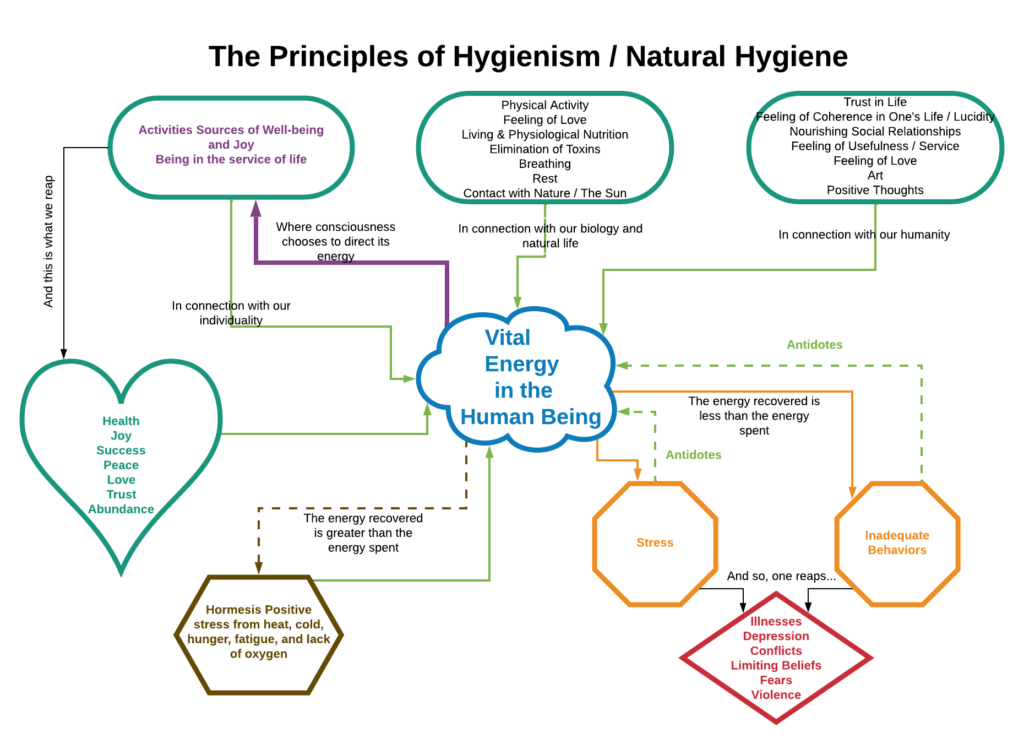
Energy leaks
As can be seen, to feel good and lead a fulfilling life, it is necessary to develop everything that brings us vital energy and to limit leaks. The diagram below details these energy leaks and the associated antidotes that allow for (partially) recycling this lost energy by reconnecting with oneself and with life.
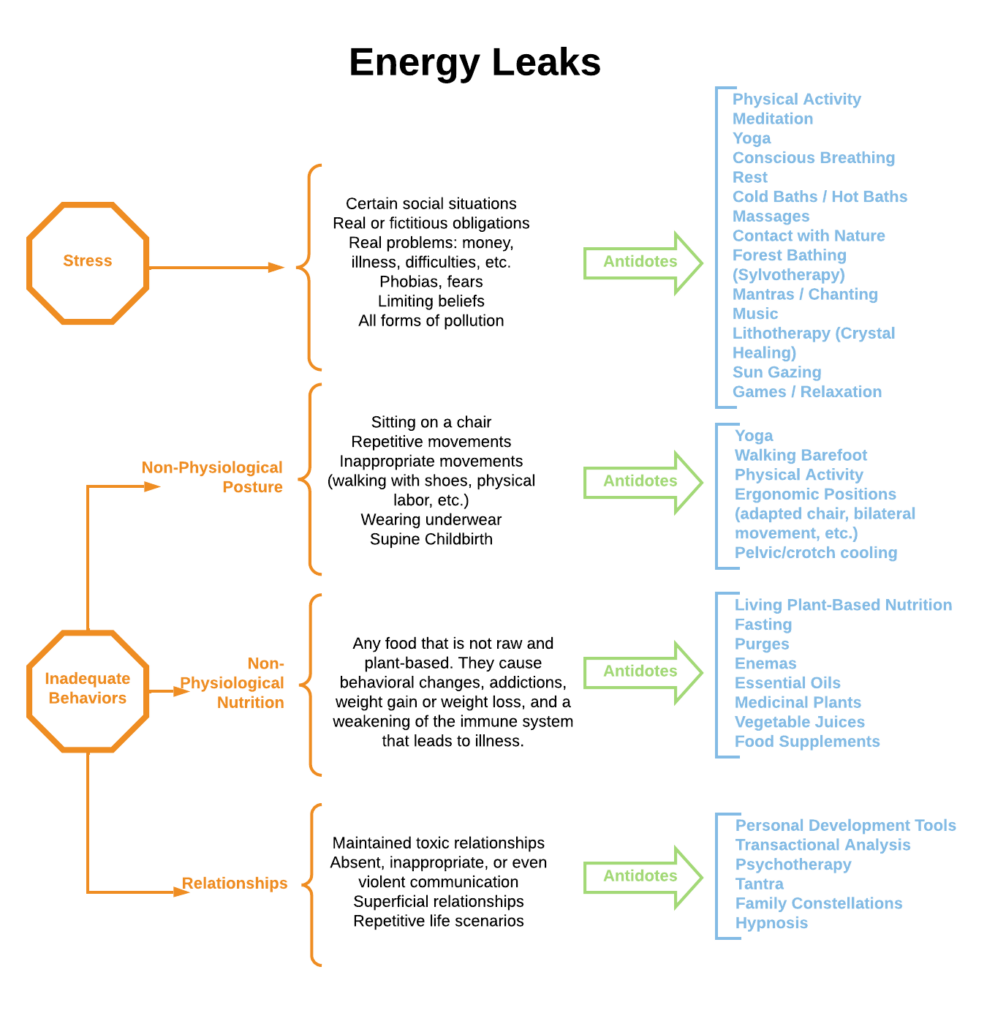
Life of primates VS life of humans
Hygienism would consist (according to the definition established at the beginning of this article) in reconciling in our daily lives practices that aim to recreate, naturally or artificially, the living conditions that prevailed at the dawn of humanity and for which our organism is made. Experience shows that the more one integrates hygienism into their daily life, the more well-being and joy spontaneously spring from our bodies. This happens without having to achieve high goals or needing to gather different parameters of an equation that would be that of happiness. We feel good here and now, and this, without any artifice. The reason is simple, hygienism brings us closer, through its antidotes, to the natural living conditions of the primates that we are! A logic that is presented in the following diagram:
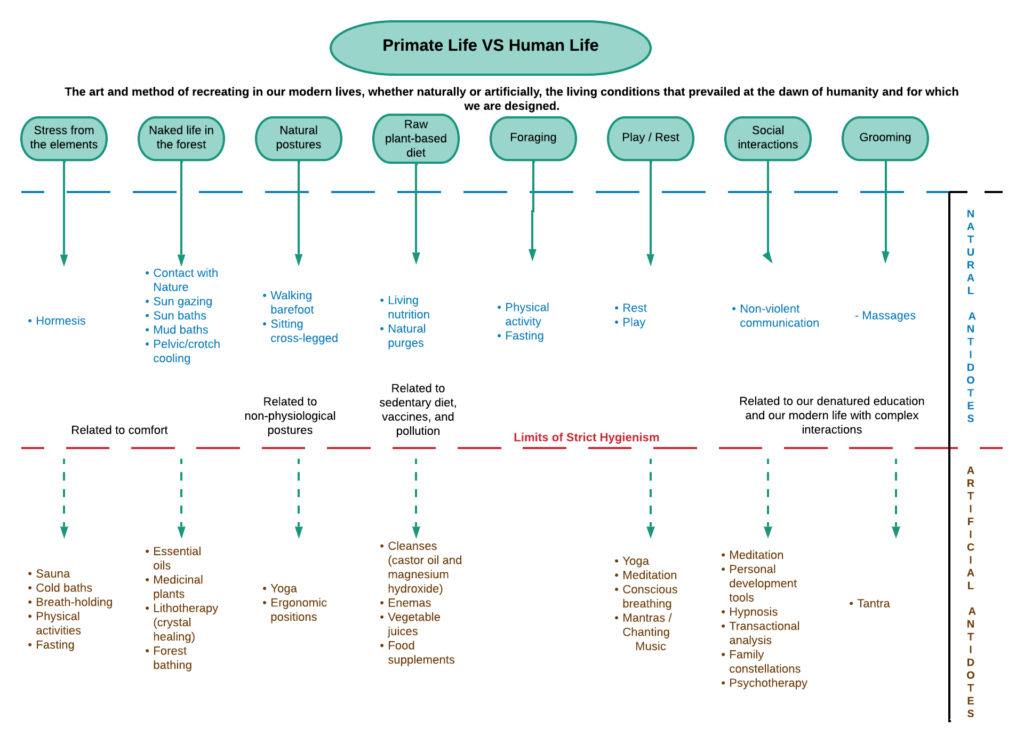
Natural vs artificial antidotes
If natural antidotes are no longer sufficient in our time, it is because our environment has become too polluted and artificial, and our bodies too weakened and clogged by an inadequate lifestyle. It is for these reasons that humanity has developed these ‘artificial’ antidotes that allow us to compensate for both our heavy toxic legacy and less favorable living conditions for our physiology. To understand how some of these antidotes work and how to integrate them into life, here are the other articles on this site that will provide you with clarifications:
